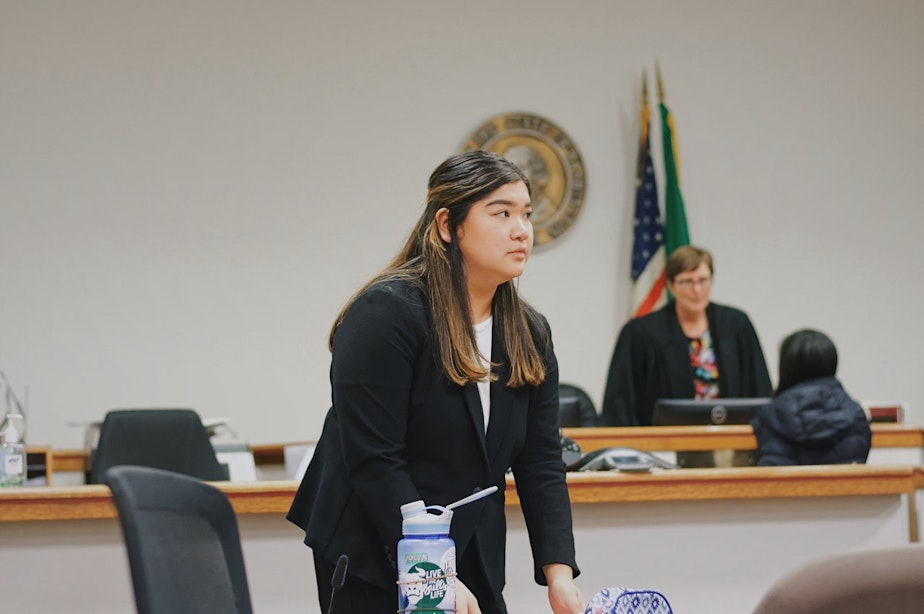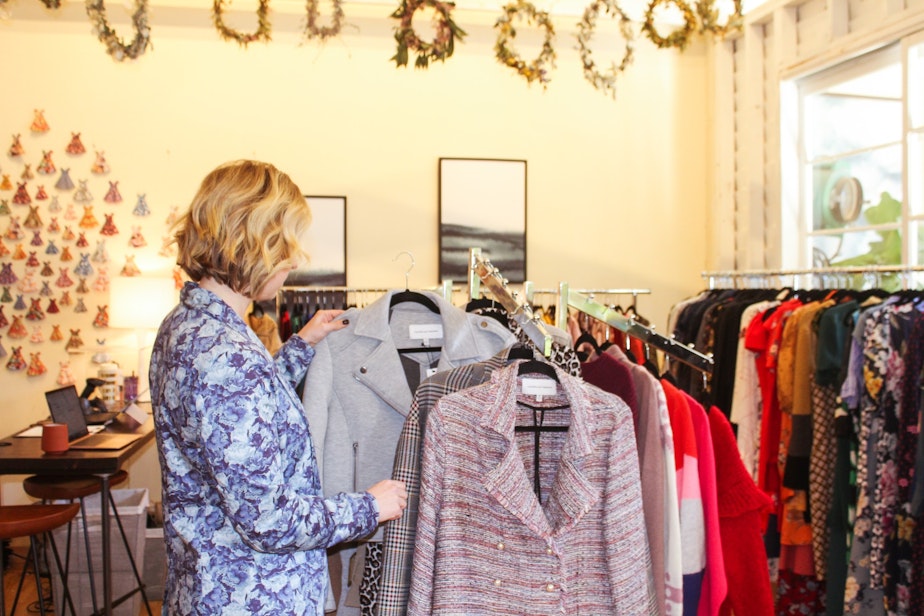The politics of pantsuits. Teen grapples with unwritten dress code for women in leadership

For the first time in United States history, the country saw six women run for president in the 2020 election. Unlike the male candidates, the women were asked about their fashion choices.
What women candidates wear plays a huge role in whether people think they’re electable, and that judgment of women’s clothing choices starts pretty young.
I met with high school student Sancha Gonzalez, who told me how she decided what she would wear for Mock Trial, a club where students imitate an actual trial as attorneys and witnesses.
“I would always straighten my hair,” Gonzalez said. “Then I would do my makeup. It couldn’t be too intense, but we still had to look professional by covering up our acne and dark circles. Lastly, I would put on my heels and finally walk out the door for the day.”
As president of Mock Trial, Gonzalez knows exactly what the jury is looking for. Follow their rubric, and you won’t lose points.
She remembers their first scrimmage, when the jury told them why they lost: “All of the women attorneys were told that they should’ve worn pants instead of skirts because skirts made them look more feminine, and they would be more respected if they wore pants.”
Pants might be the expectation for Mock Trial, but Hillary Clinton got criticized for her pantsuits. So what is the official rule book?
Sponsored
Well, there is none. But Gonzalez knows that either way, expectations involve dressing the part.
“What you wear sends a message to people about who you are,” said Jessica Bennet, a New York Times editor covering gender and culture. She explained that women are often scrutinized more critically than their male counterparts.
“This ranges from their records and how much experience they have, to whether the public perceives them to be electable, to the way that they say things, literally their tone of voice or the pitch of their tone, to what they wear," Bennet said. "And part of this has to do [with] the fact that we are not used to seeing women in the highest positions of power.”
For now, women still have to conform to an unwritten dress code.
Ambika Singh wants to help them. She has a business called Armoire, an online clothing retail store with a variety of styles to choose from.

“Clothing is how we present ourselves,” Singh said. “Part of the armor, the first impression. In the modern era, our armor is clothing, so I focused on clothing because of its relationship with how we present externally and how we feel internally.”
But the women running for president in 2020 didn’t get to pick their outfits based on personal style or what made them feel good. Instead, they had to think carefully about what each outfit telegraphed to voters.
We won’t have a woman president this year. But the democratic nominee Joe Biden promised to nominate a woman as his running mate.
How will voters react to what she wears?
Sponsored
I went back to high school student Sancha Gonzalez. Her dream is to go into politics and possibly work in the White House. She said her gender and what she wears is always in the back of her mind.
“I feel like if you don’t dress in a feminine way, you’re seen as too powerful, too manly, or something that you’re not," Gonzalez said. "Women that are wearing pantsuits or powerful outfits or strong colors, they’re always seen as abrasive and aggressive instead of, ‘Oh, they’re wearing the color red just because they like it,’ like how a man would be seen.”
Gonzalez would like to think we don’t get judged by what we wear. But she also realizes both men and women have internalized the messages about the way professional women should look.
And given her ambitions for the future, Gonzalez will continue to play by the rules until those rules change.
This story was created in KUOW's RadioActive Advanced Producers Workshop for teenagers, with production support from Sonya Harris. Edited by Marcie Sillman.
Find RadioActive on Facebook, Twitter, TikTok and Instagram, and on the RadioActive podcast.
Sponsored
Support for KUOW's RadioActive comes from the Bill & Melinda Gates Foundation Discovery Center.



